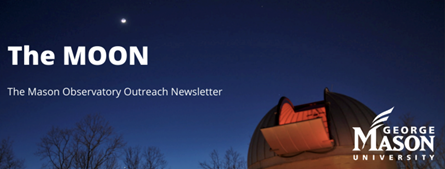We have the incredible honor of welcoming Dame Jocelyn Bell Burnell who will speak to us virtually from England on 12/11/22. Jocelyn Bell Burnell discovered the first radio pulsar in 1967 and has continued a string of incredible accomplishments in the field of astrophysics ever since. Don’t miss this very special opportunity!
NOVAC General Meetings
Sunday, December 11, 1:30 – 3:00pm
This NOVAC meeting will be held both in-person at George Mason University as well as live-streamed via Google Meet. Here is information for both.
In Person Meeting:
George Mason University, Exploratory Hall, Room 3301. Check GMU web site for nearby parking options. Some lots or garages do charge for parking. Room will be open as early as 12:45pm.
https://info.gmu.edu/campus-maps-and-directions/
Virtual Option: Join using Google Meet
Video call link: https://meet.google.com/osh-bcyd-gti
Or dial: (US) +1 484-430-1468 PIN: 486 839 001#
More phone numbers: https://tel.meet/osh-bcyd-gti?pin=1354183604637
Title: Tick, tick, tick, pulsating star, how we wonder what you are
Abstract:
In this talk Jocelyn will describe the discovery of pulsars (pulsating radio stars) from the point of view of the student involved in the discovery. I will also reflect on the treatment of young women scientists in the 1960s.
Biography:
Dame Jocelyn Bell Burnell is an astrophysicist from Northern Ireland who, as a postgraduate student, discovered the first radio pulsar in 1967.
Jocelyn Burnell has worked in many roles and in many branches of astronomy, working part-time while raising a family. She is now a Visiting Academic in Oxford, and the Chancellor of the University of Dundee, Scotland. She has been President of the UK’s Royal Astronomical Society, in 2008 became the first female President of the Institute of Physics for the UK and Ireland, and in 2014 the first female President of the Royal Society of Edinburgh. She was one of the small group of women scientists that set up the Athena SWAN scheme.
She has received many honors, including a $3M Breakthrough Prize in 2018.
The public appreciation and understanding of science have always been important to her, and she is much in demand as a speaker and broadcaster. In her spare time, she gardens, listens to choral music and is active in the Quakers. She has co-edited an anthology of poetry with an astronomical theme – ‘Dark Matter; Poems of Space’.



